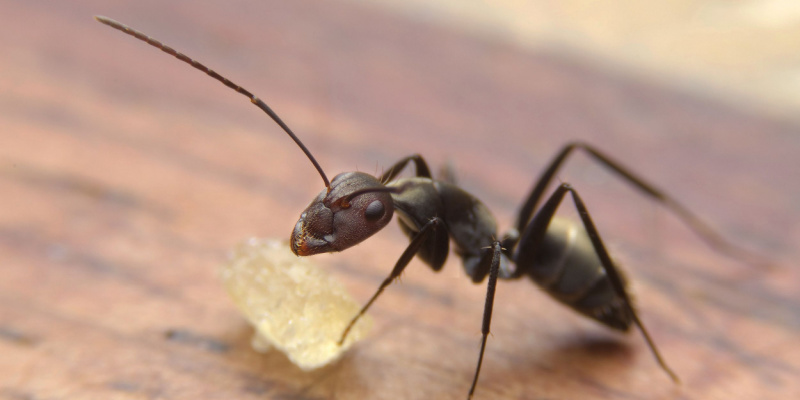Ants may be the world's tiniest invaders, but when they march into your home in large numbers, they become a colossal nuisance. Indianapolis residents, with the city's humid continental climate, often face the brunt of these infestations, especially during the warmer months. If you're grappling with an ant problem, fret not. Here's a comprehensive guide to help you reclaim your space.
1. Understand Your Enemy
Different ant species have varied behaviors, habitats, and preferences:
- Carpenter Ants: These are notorious for burrowing into wood, potentially damaging your home's structure.
- Odorous House Ants: Recognizable by the unpleasant odor they emit when crushed.
- Pavement Ants: Often found nesting under sidewalks, logs, or bricks.
- Pharaoh Ants: Attracted to foods high in protein and fat.
Understanding the type of ant can help in devising an effective elimination strategy.
2. Sanitation is Key
Ants enter homes in search of food and water. A clean home is your first line of defense:
- Wipe Surfaces: Clean kitchen counters, tables, and floors regularly to remove crumbs and sticky residues.
- Seal Food: Store food in airtight containers, especially sweets, honey, syrup, and pet food.
- Fix Leaks: Ensure there are no dripping taps or water accumulation. Many ant species are attracted to moisture.
3. Find Their Entry Points
Ants are methodical creatures. They often follow the same path, leaving a scent trail for others to follow. Observe their movement to:
- Identify Entry Points: Common entryways include windows, doors, and cracks in walls.
- Seal Gaps: Use caulk or another sealant to block these entry points. This prevents a new colony from invading your home.
4. Natural Repellents
Before resorting to chemicals, consider natural repellents:
- Lemon Juice: The acidic nature of lemon disrupts ant trails. Squeeze lemon at entry points and scattered pieces of lemon peel.
- Peppermint Oil: A natural ant deterrent. A few drops on a cotton ball placed in problem areas can deter ants.
- Cucumber: Ants dislike the taste of cucumber. Place slices near their entry points.
5. Bait Stations
Ant baits can be effective as they target the entire colony:
- Commercial Baits: Available in stores, these contain poisoned food that worker ants carry back to the colony, inadvertently poisoning the queen and other ants.
- Homemade Bait: Mix 1 part borax with 3 parts powdered sugar. The sugar attracts the ants, and the borax kills them. However, keep this mixture away from pets and children.
6. Ensure Yard Maintenance
A well-maintained yard can reduce the chances of an ant infestation:
- Trim Trees and Bushes: Ensure they don't touch the home, providing ants an easy path inside.
- Regular Lawn Care: Ant nests are harder to establish in well-maintained lawns.
- Avoid Mulch: If you must use mulch, ensure it's a good distance from the foundation of your home. Mulch can serve as an ideal nesting ground for ants.
7. Seek Professional Help
Sometimes, despite your best efforts, the infestation becomes too severe to handle. That's when you call in the experts:
- Pest Control Services: Professionals will have access to commercial-grade products that are more effective and long-lasting.
- Tailored Solutions: They can offer solutions based on the specific ant species and the severity of the infestation.
Conclusion: Say Goodbye to Unwanted Guests
Ants, though tiny, can pose a significant problem when they decide to invade our homes. However, with a combination of preventive measures, natural solutions, and professional assistance when needed, Indianapolis residents can ensure their homes remain ant-free.
If your ant problem persists or feels overwhelming, Trio Pest Control is here to assist. With years of experience serving Indianapolis and a dedicated team of experts, we'll ensure these tiny trespassers are shown the door. Reach out today and take the first step towards an ant-free home.
